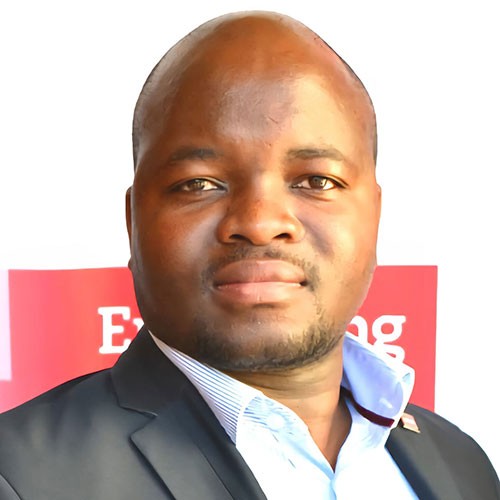
I consider myself a strong advocate of financial inclusion so it’s perhaps not surprising that the professional achievement I’m proudest of relates to this area. It came when I was leading a team to develop innovative financial products, many of which were targeted at individuals who were financially excluded. My contribution to this project was particularly meaningful to me.
I believe all labour-related payments, whether salaries or wages, should be made electronically, either through bank accounts or e-wallets. Such a measure would significantly advance financial inclusion, particularly in this part of Africa, where cash remains the predominant means of payment.
Working in a service centre builds technical expertise, efficiency and problem-solving skills
I grew up in rural Malawi, where it was difficult to find role models for my professional aspirations. At secondary school, though, excelling academically led naturally to a career in accountancy, which shaped my ambitions.
The first five years of my career were spent in audit at Deloitte. Now, as manager of a service centre handling accounting functions such as reconciliations and compliance for a retail bank, my focus is on business development and account relationship management. Working in a service centre is a good career move as it builds technical expertise, efficiency and problem-solving skills. I prefer it to audit because it is more hands-on and focused on improving processes. It also aligns well with my detail-oriented and collaborative working style.
What I enjoy most about my job is engaging with customers and taking the time to understand their needs, aspirations and challenges. The process of listening and building rapport allows me to tailor solutions that address their specific situations. I find it very rewarding to see their satisfaction and know that what we’ve implemented has improved their lives or businesses.
Nelson Mandela said: ‘It always seems impossible until it’s done.’ That nugget of wisdom constantly inspires me to pursue excellence and not accept self-imposed boundaries that might stop me from reaching my full potential. Whenever I doubt myself, Mandela’s words encourage me to think bigger, embrace new possibilities and keep moving forward with confidence.
Moving out of audit into banking was a step out of my comfort zone that required me to embrace an entirely new environment. I faced doubts from some colleagues who felt I had been shaped by my previous career path and might struggle in my new role, but I showed how adaptable I was, which ensured I could perform effectively.
Skilled professionals can ensure accountability where AI alone may fall short
Artificial intelligence (AI) clearly has huge potential and fully grasping its ultimate reach is a challenge. It has clear implications for the way I conduct my work. The competitive landscape is evolving rapidly, requiring continuous adjustments. For example, many players in the industry are already leveraging AI for customer credit scoring, and deploying AI-powered chatbots to enhance service efficiency. In response, we are also working to adapt by integrating AI into similar processes so that we remain competitive and deliver improved value to our customers.
AI raises sensitive issues around things like data privacy, and the validation of complex models, which could result in undetected errors or biases. As a result, I believe skilled professionals will remain essential to finance operations in banking, ensuring oversight, judgment and accountability where technology alone may fall short.
Creating something valuable from the ground up has always inspired me. If I wasn’t working in a financial role, I would probably be an architect. Architecture offers endless opportunities for creativity and bringing ideas to life.

